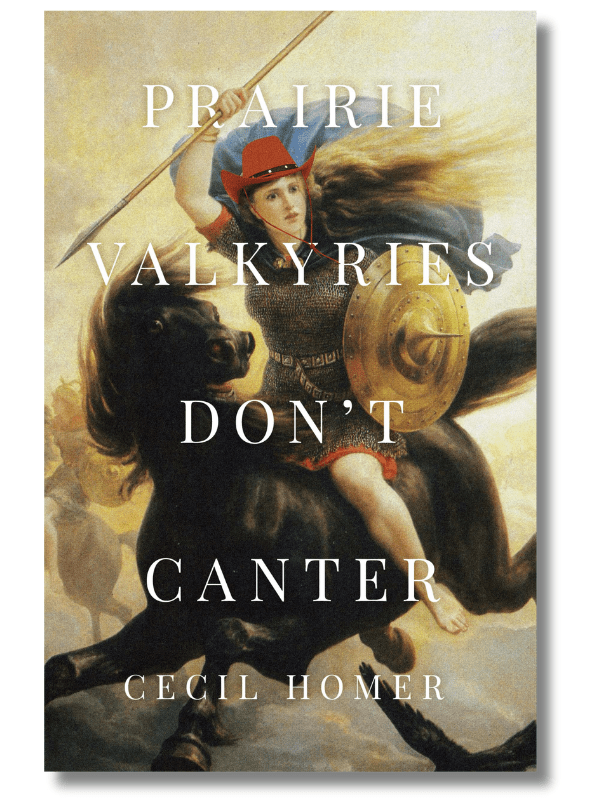Prairie Valkyries Don’t Canter
by Cecil Homer
Genre: Literary Fiction
ISBN: 9798891326323
Print Length: 352 pages
Publisher: Atmosphere Press
Reviewed by Eric Mayrhofer
The empowering story of a warrior woman in academia who forges a life of freedom for herself and her child
Cecil Homer’s Prairie Valkyries Don’t Canter is a book that wrestles with some big questions. The first one, and maybe the biggest, is: What is power?
Jennifer thinks she knows the answer by the time she’s earned her Ph.D. She says, “Some might call it freedom, but I want more. Power to have others do what I want—for me…Others have dictated to me for too long. It’s time to reverse course.” It’s a blunt introduction to a driven woman, but it’s also humanizing. Jennifer is intelligent, always asking questions, and a little naive about human interaction.
This shortcoming adds texture and tension throughout the story. Jennifer has an interest in ethnography that doesn’t gel with the adherence to data that her male professors share. As an assistant professor, her assertions raise eyebrows (and some veiled threats ) from the tenured men in her orbit. As relentless as she is with her studies, it won’t help her if she can’t evolve into someone who can navigate the politics around her.
What’s fascinating about Valkyries is that the writing style closely mirrors Jennifer’s state of mind. On the one hand, the prose is frenetic, like the mind as it tries to fire through different and complicated processes at lightning speed. When calculating early in the book, for instance, readers see Jennifer in a frazzled state, trying to figure out something new and unfamiliar. “That was not easy: OK, the picture made sense, but the calculations didn’t; well, just memorize how to do it and live another day. Keep Professor Dahl happy.” Homer is excellent at capturing the fractured pace of a stressed-out mind.
On the other hand, this almost skintight closeness to Jennifer’s mindset can create a sense of coldness or a bit of a distance. More than a few times, I found myself making notes like “Jennifer’s excited about her realization,” only to have it occur to me that I was drawing conclusions of my own. There is no quickening of the pulse, no elaboration on her emotions—only my feeling that she should be excited and that she seemed to be taking shortcuts in the moment. When some big moments happen, Valkyries leaves some to the imagination.
None of that, however, is meant to minimize or take away from Jennifer’s determination. That level of drive is necessary for a woman navigating a male-dominated world in recent post-Nixon America. And, despite the several empathetic and supportive men who find their way into her life (the three Daddies that Jennifer’s daughter Valky says, “I have had for all my life”), that hardness is mandatory for a twentieth century woman like Jennifer who wants to show her daughter that personal power, accomplishment, and self-determination are possible in a world often set on dismissing their ambitions.
Prairie Valkyries Don’t Canter is an inspired story fueled by and formed around the unapologetic feminism it depicts. An altogether rewarding reading experience.
Thank you for reading Eric Mayrhofer’s book review of Prairie Valkyries Don’t Canter by Cecil Homer! If you liked what you read, please spend some more time with us at the links below.
The post Book Review: Prairie Valkyries Don’t Canter appeared first on Independent Book Review.
